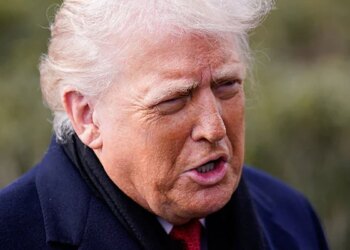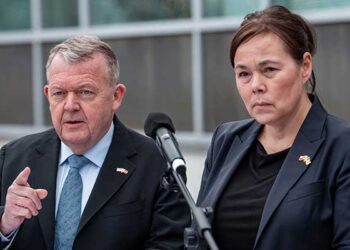Select Language:
France and Germany took steps on Thursday to strengthen the protection of Polish airspace as the UN Security Council convened an emergency session to address Warsaw’s allegations that Moscow conducted a drone attack on its territory.
Poland called this incident an intentional, unprecedented strike, with Polish and NATO forces shooting down multiple drones overnight from Tuesday into Wednesday. NATO and the European Union described it as an aggressive act against the country. Moscow denied targeting Poland and stated there was no evidence the drones were Russian.
Polish President Karol Nawrocki, during a visit to a western Poland airbase, warned that the incident was “an attempt to test NATO’s response mechanisms and our readiness to act.”
Germany announced plans to “expand and extend” its role in NATO’s Air Policing mission to provide increased coverage over Polish airspace. The defense ministry said it would double the number of Eurofighter jets to four and keep them on duty for three more months through the end of the year.
French President Emmanuel Macron revealed via X (formerly Twitter) that France would send three Rafale fighter jets to help defend Polish airspace and NATO’s eastern flank alongside allies.
The Czech Republic, the Netherlands, and Sweden summoned their Russian ambassadors to protest the drone strike.
The UN Security Council’s South Korean presidency announced an emergency meeting scheduled for Friday at 3:00 p.m. (1:00 p.m. GMT) to discuss Warsaw’s claims of a “violation of Polish airspace by Russia.”
NATO described the situation as “reckless,” highlighting that Russian drones and missiles have intruded into NATO member airspace multiple times since Moscow’s invasion of Ukraine in 2022. Polish authorities reported that drones breached its airspace 19 times in this instance. No casualties occurred, with only minor property damage, including the destruction of a house and a car.
Poland’s National Security Council gathered on Thursday, and the defense minister was expected to brief parliament on recent findings. The country increased security measures, closing eastern borders with Belarus and Ukraine to civilian air traffic up to 3,000 meters (about 1.9 miles) until December 9, and banning drones from the airspace.
Border crossings with Belarus, already closed during the military drills Moscow and Minsk are conducting from September 12 to 16, will remain shut from Friday.
Russian foreign ministry spokeswoman Maria Zakharova urged Poland to reconsider its “destructive steps,” warning of potential consequences.
Polish Prime Minister Donald Tusk said Wednesday’s drone attack marked a significant escalation in tensions with Russia. He called a NATO meeting under Article 4, which allows members to seek consultations when their “territorial integrity, political independence, or security” are threatened—one of the few times this article has been invoked.
NATO Secretary General Mark Rutte condemned Moscow’s “reckless behavior,” affirming the alliance’s swift response: NATO’s air defenses performed as expected.
Both the European Union and Ukraine condemned the incident. Dutch Foreign Minister David van Weel called Russia’s actions “reckless violations of Polish airspace, threatening our collective security.” Czech Foreign Minister Jan Lipavsky called it “a pure Kremlin provocation,” while Swedish Foreign Minister Maria Malmer Stenergard emphasized that such violations pose a threat to Europe’s stability.
Meanwhile, China’s foreign ministry spokesperson, Lin Jian, expressed hope that all parties “will resolve their disputes through dialogue and consultation,” noting that China has not condemned Russia’s war in Ukraine.
Poland remains a major supporter of Ukraine, hosting over a million Ukrainian refugees and serving as a vital transit point for Western military and humanitarian aid to Ukraine.







